
Many people do extensive research before joining an organisation. It is vital for them to enter with positive expectations. But, at the same time, it can be good for them to do a reality check.
People can clarify what they can and can’t expect in the particular culture. They then stand a better chance of building on and adding to the positives, whilst also minimising the negatives.
Imagine that you are about to join an organisation. It can be useful to consider the following steps.
Clarifying What You Can And Can’t
Expect From A Particular Culture
Many times I have worked with individuals who are applying for particular roles in organisations. Lots of the work revolves around how they can use their strengths to help the potential employers to achieve success.
At the same time, however, we explore the things they may experience in the culture. This involves lots of research – checking with people who are familiar with the organisation.
Here, for example, is the list we compiled before one person applied for a role in a particular company.
Can Expect. The specific things
I can expect in the culture are:
To work with nice people – because people in the company are very ‘civilised’.
To be paid reasonably well.
To work in a relatively up-to-date environment.
To get little direction from the top.
To cope with ‘decisions by committee’.
To spend lots of time on internal meetings.
To hit difficulties in a couple of years, because the leaders are delaying the strategic decisions required to thrive in the market.
Can’t Expect. The specific things
I can’t expect in the culture are:
To get quick decisions.
To get some parts of the business to be more customer-focused.
To get immediate backing for the tough decisions I make about people.
To get lots of positive feedback – but that is okay providing I am left in peace to do my job.
Imagine that you are thinking of joining a particular organisation. If you wish, try tackling the exercise on this theme. You can, of course, also use it to make sense of the particular organisation is which you are presently employed.
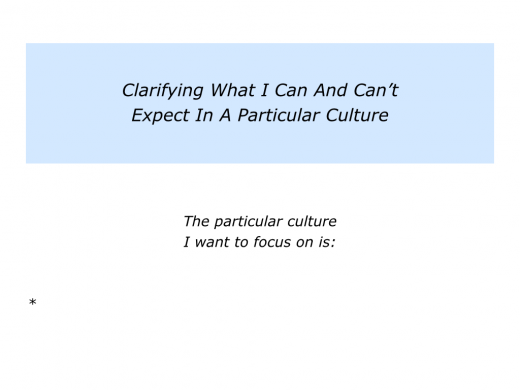
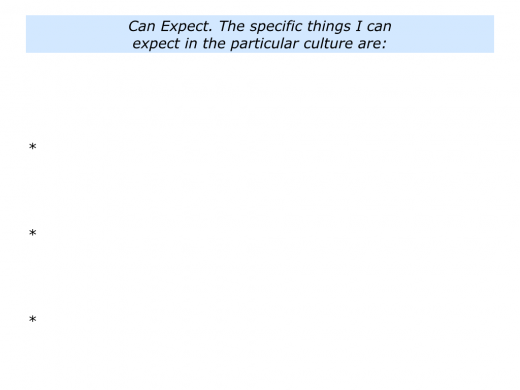
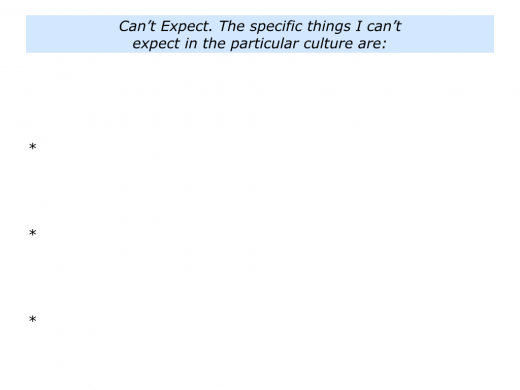
Clarifying How You Can Build On And
Add To The Positive Things In The Culture
“It helps to be clear on what I can and can’t expect from both the organisation and my potential manager,” said the person mentioned above.
“In my 20s I got upset because the organisations I worked in did not always do what it said on the tin. Far from making me cynical, this kind of exercise provides the basis for seeing how I can do good work in the organisation.”
Moving on, she clarified what she could and could not expect from a particular manager she would be working with. This called for doing lots of research, but she began to build up a picture. She wrote:
What I can expect is for him:
To be full of energy in the morning.
To speak quickly and get straight to the point.
To provide clear goals.
To provide air cover that allows me to operate.
To want to be updated on my team’s progress.
To prefer face-to-face conversations rather than email.
To be fair, but also let me know if he is unhappy about my work.
Bearing these things in mind, she focused on how to build on the positive aspects of working in the culture and also with her potential manager. If you wish, try tackling the exercise on this theme.
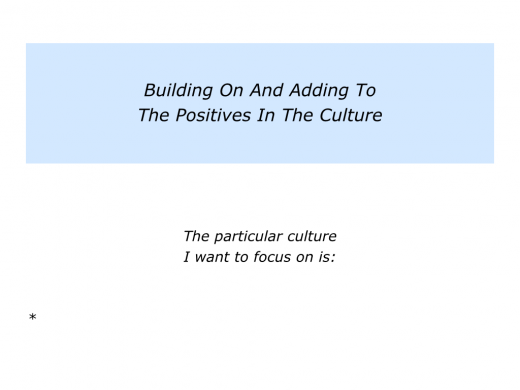
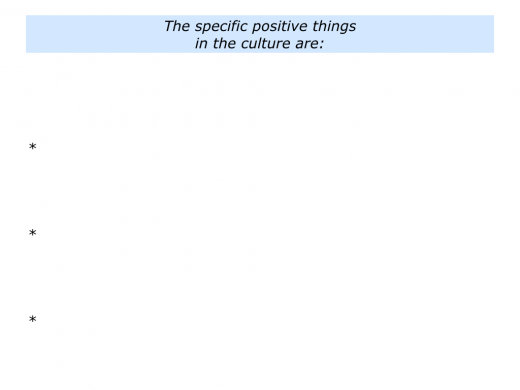
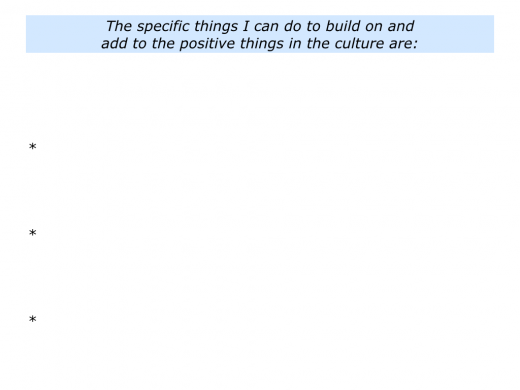
Clarifying How You Can Minimise
The Possible Negative Things In The Culture
“Go in with your eyes wide open,” is the advice given to somebody who may be joining a team or organisation. One approach is to talk with people who know the set-up and to ask the following questions.
What are the Dos and Don’ts for being successful in this culture? Can you give specific examples?
What are the things I can and can’t expect in the culture? What are the positive aspects? What are the possible negative aspects?
What is a particular manager’s style? How do they behave? What are the things I can and can’t expect from them? What are the things that people can do to work successfully with the manager?
Certainly there may be surprises, but it can be useful to get some idea of the culture that they are entering.
The person mentioned above did this research. In addition to the positives, she also explored the potential negatives.
One area of concern was getting backing for any tough decisions to be made about rebuilding the team. We explored how to position this during the interview.
She would start by reassuring the employer. Certainly she would deliver the team’s contribution to the organisation’s goals. It would be important, however, to have team members who did their best to make this happen. If people didn’t perform, she would recruit people who would deliver success.
Positive realism is key to delivering peak performance. It is vital to be positive, but also to be realistic.
Bearing this in mind, it can be useful to approach a new culture – or to thrive in your present culture – by clarifying what you can and can’t expect. You can then build on the pluses and, if necessary, find ways to deal with any minuses.
If you wish, try tackling the final exercise on this theme. This invites you to explore how you can deal with any possible negatives in a culture.
It is then up to you to decide whether the overall package – the pluses and minuses involved – is worth it. You can decide whether or not you want to contribute to that culture.
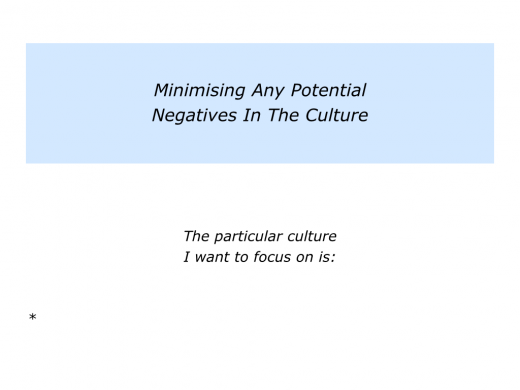
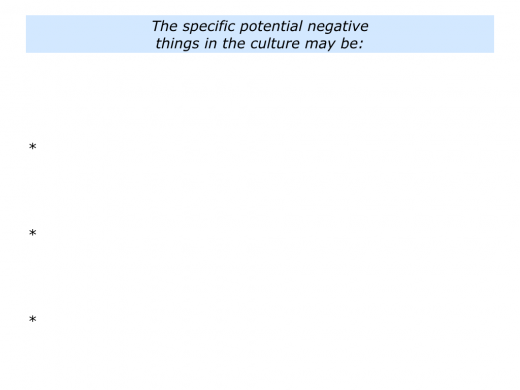
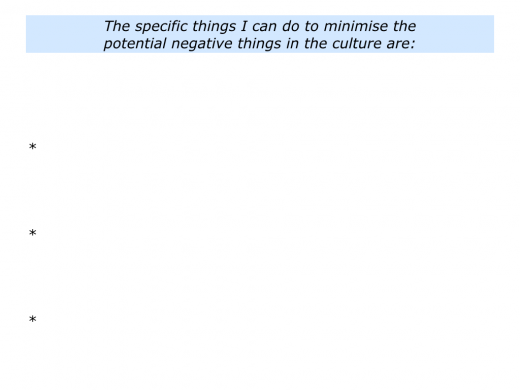






Leave a Reply